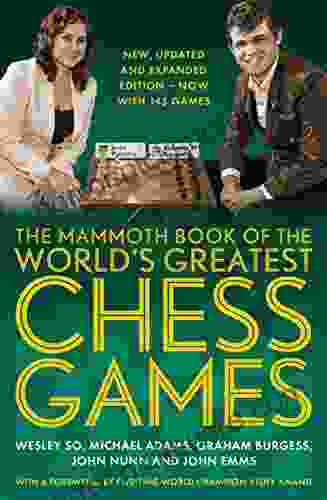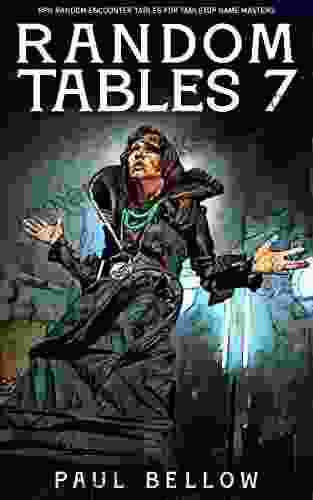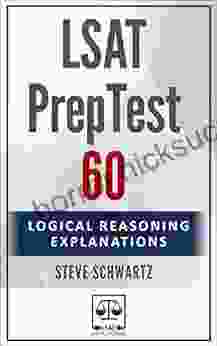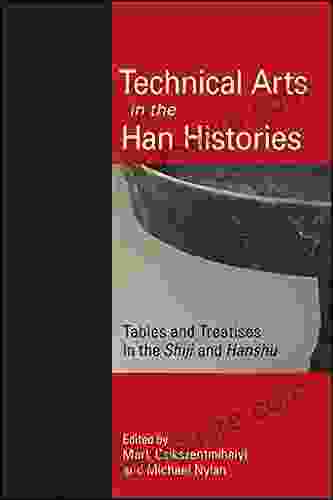Logical Reasoning Explanations: A Comprehensive Guide to Mastering the LSAT Preptest Logical Reasoning Section

The Logical Reasoning section of the LSAT is designed to test your ability to analyze and evaluate arguments. To succeed on this section, you need to be able to understand the structure of logical reasoning questions, identify common question types, and develop strategies for effectively analyzing and explaining logical reasoning arguments.
This article will provide you with a comprehensive guide to logical reasoning explanations in the LSAT Preptest. We will cover the following topics:
- The structure of logical reasoning questions
- Common question types
- Strategies for analyzing logical reasoning arguments
- How to write effective logical reasoning explanations
Logical reasoning questions typically consist of a stimulus and a question. The stimulus is a passage of text that presents an argument. The question asks you to identify the of the argument, the evidence that supports the , and the flaws in the argument.
5 out of 5
| Language | : | English |
| File size | : | 1633 KB |
| Text-to-Speech | : | Enabled |
| Screen Reader | : | Supported |
| Enhanced typesetting | : | Enabled |
| Word Wise | : | Enabled |
| Print length | : | 95 pages |
The of an argument is the main point that the author is trying to make. The evidence is the information that the author provides to support the . The flaws in an argument are the weaknesses in the author's reasoning.
There are several common types of logical reasoning questions. The most common types include:
- Assumption questions: These questions ask you to identify the unstated assumptions that the author is making in their argument.
- Inference questions: These questions ask you to draw a from the information that is provided in the stimulus.
- Flaw questions: These questions ask you to identify the flaws in the author's reasoning.
- Strengthening questions: These questions ask you to identify additional evidence that would support the author's .
- Weakening questions: These questions ask you to identify additional evidence that would weaken the author's .
There are several strategies that you can use to analyze logical reasoning arguments. Some of the most effective strategies include:
- Identifying the : The first step is to identify the of the argument. The is the main point that the author is trying to make.
- Identifying the evidence: The next step is to identify the evidence that the author provides to support their . The evidence is the information that the author uses to support their claim.
- Identifying the flaws: The final step is to identify the flaws in the author's reasoning. The flaws are the weaknesses in the author's argument.
When you are writing a logical reasoning explanation, it is important to be clear and concise. Your explanation should be easy to understand and it should address all of the relevant issues.
Here are some tips for writing effective logical reasoning explanations:
- Use clear and concise language. Your explanation should be easy to understand. Avoid using jargon or technical terms.
- Be specific. Your explanation should be specific and detailed. Avoid making general statements or using vague language.
- Address all of the relevant issues. Your explanation should address all of the relevant issues. Do not ignore any important points.
- Organize your explanation. Your explanation should be organized and easy to follow. Use headings and subheadings to structure your explanation.
Logical reasoning is a critical skill for success on the LSAT. By understanding the structure of logical reasoning questions, identifying common question types, and developing strategies for effectively analyzing and explaining logical reasoning arguments, you can improve your score on the LSAT Logical Reasoning section.
5 out of 5
| Language | : | English |
| File size | : | 1633 KB |
| Text-to-Speech | : | Enabled |
| Screen Reader | : | Supported |
| Enhanced typesetting | : | Enabled |
| Word Wise | : | Enabled |
| Print length | : | 95 pages |
Do you want to contribute by writing guest posts on this blog?
Please contact us and send us a resume of previous articles that you have written.
 Fiction
Fiction Non Fiction
Non Fiction Romance
Romance Mystery
Mystery Thriller
Thriller SciFi
SciFi Fantasy
Fantasy Horror
Horror Biography
Biography Selfhelp
Selfhelp Business
Business History
History Classics
Classics Poetry
Poetry Childrens
Childrens Young Adult
Young Adult Educational
Educational Cooking
Cooking Travel
Travel Lifestyle
Lifestyle Spirituality
Spirituality Health
Health Fitness
Fitness Technology
Technology Science
Science Arts
Arts Crafts
Crafts DIY
DIY Gardening
Gardening Petcare
Petcare Valentin Nugmanov
Valentin Nugmanov Brandon Sanderson
Brandon Sanderson Eric Provan
Eric Provan Casey Schreiner
Casey Schreiner Dan Orr
Dan Orr Benjamin Southerland
Benjamin Southerland Lucy Cooke
Lucy Cooke Peter Isler
Peter Isler Rui Zhi Dong
Rui Zhi Dong Kevin Easley
Kevin Easley Joline Godfrey
Joline Godfrey Rick Rinehart
Rick Rinehart Josh Gates
Josh Gates Drew Estell
Drew Estell Chris Mcintyre
Chris Mcintyre Karen J Rooney
Karen J Rooney Lizzy Bolan
Lizzy Bolan Lindsey Vonn
Lindsey Vonn Sandy Glenn
Sandy Glenn Janice K Ledford
Janice K Ledford Octavia Steen
Octavia Steen Dorian Gerhold
Dorian Gerhold Matthew Stein
Matthew Stein Department Of The Army
Department Of The Army Marian L Tupy
Marian L Tupy Frank Galli
Frank Galli John H Holland
John H Holland David Quammen
David Quammen Eva Hoffman
Eva Hoffman Cokie Roberts
Cokie Roberts L H Stacey
L H Stacey Jo Carol Claborn
Jo Carol Claborn John Fry
John Fry Lizzie Lane
Lizzie Lane Rachel Ann Cullen
Rachel Ann Cullen Gooseberry Patch
Gooseberry Patch Kara Richardson Whitely
Kara Richardson Whitely Gary Oberg
Gary Oberg Kate Williams
Kate Williams Harriet A Washington
Harriet A Washington Lebawit Lily Girma
Lebawit Lily Girma Naomi Steiner
Naomi Steiner Tim Tebow
Tim Tebow Jeremy Lent
Jeremy Lent Bob Raynor
Bob Raynor John Biggar
John Biggar John E Eck
John E Eck Patti Jean
Patti Jean Brian M Conners
Brian M Conners Tracy Tresidder
Tracy Tresidder Edward O Wilson
Edward O Wilson Martijn Konings
Martijn Konings Brian Sparks
Brian Sparks Mark Lutz
Mark Lutz Mark Csikszentmihalyi
Mark Csikszentmihalyi Hannah Witton
Hannah Witton John D Barrow
John D Barrow Michael P Nordvall
Michael P Nordvall Emily Glickman
Emily Glickman Dan R Lynch
Dan R Lynch T Edward Nickens
T Edward Nickens Roger Eckstine
Roger Eckstine Bob Hazard
Bob Hazard Joe Clement
Joe Clement Ken M Harrison
Ken M Harrison Olivia Longray
Olivia Longray Matt Jacobson
Matt Jacobson Sanjay Gupta
Sanjay Gupta Christine Desdemaines Hugon
Christine Desdemaines Hugon Stephen Renwick
Stephen Renwick Bernard Lewis
Bernard Lewis Joseph Ciarrochi
Joseph Ciarrochi Glenn Randall
Glenn Randall Ciara Attwell
Ciara Attwell Jamie C Martin
Jamie C Martin Clifford E Trafzer
Clifford E Trafzer Kim John Payne
Kim John Payne Bernardo Kastrup
Bernardo Kastrup Kristin Cashore
Kristin Cashore Clifford Geertz
Clifford Geertz Tom Dodd
Tom Dodd Lori Ashley Taylor
Lori Ashley Taylor Patricia Hachten Wee
Patricia Hachten Wee Elaine Stillerman
Elaine Stillerman Jenson Button
Jenson Button Shelby Evans
Shelby Evans Jeremy Griffith
Jeremy Griffith Colin Gordon
Colin Gordon Linda Spatig
Linda Spatig Theodore Gray
Theodore Gray Holly Black
Holly Black Leia Stone
Leia Stone Seth A Roberts
Seth A Roberts Jo Boaler
Jo Boaler Patricia B Mcconnell
Patricia B Mcconnell David Robson
David Robson Chuck Lukacs
Chuck Lukacs Peggy J Martin
Peggy J Martin Emma Walker
Emma Walker Hansa Bhargava
Hansa Bhargava Jeff Grubb
Jeff Grubb Sheila Lukins
Sheila Lukins Christy Mihaly
Christy Mihaly Daniel Boyarin
Daniel Boyarin Deborah Taylor Hough
Deborah Taylor Hough Chanda Hahn
Chanda Hahn Nsca National Strength Conditioning Association
Nsca National Strength Conditioning Association Kelli L Ferguson
Kelli L Ferguson Dudley Wright
Dudley Wright Stephan A Hoeller
Stephan A Hoeller Ben Smith
Ben Smith Margaret E Murie
Margaret E Murie Jordan Rivet
Jordan Rivet Stephen Jenkinson
Stephen Jenkinson Catherine B Walker
Catherine B Walker S Connolly
S Connolly Bethany Warren
Bethany Warren Martin Lee Abbott
Martin Lee Abbott Dean R Giles
Dean R Giles Denise Gaskins
Denise Gaskins Stacey Barrett
Stacey Barrett Shanterra Mcbride
Shanterra Mcbride Lucy Ruddle
Lucy Ruddle Bb Easton
Bb Easton Roxanne Reid
Roxanne Reid Nancy Redd
Nancy Redd Zecharia Sitchin
Zecharia Sitchin Dennis Fisher
Dennis Fisher Carla Killough Mcclafferty
Carla Killough Mcclafferty Julie Urbanski
Julie Urbanski W David Pierce
W David Pierce Theresa Bane
Theresa Bane Educational Testing Service
Educational Testing Service Fran Zimniuch
Fran Zimniuch Joshua Rodriguez
Joshua Rodriguez Helen Leigh
Helen Leigh David Diaz
David Diaz Dave Rearwin
Dave Rearwin Shelia Craig Whiteman Pt Dpt Clt
Shelia Craig Whiteman Pt Dpt Clt Eva Robild
Eva Robild Bertrand Russell
Bertrand Russell Print Replica Kindle Edition
Print Replica Kindle Edition Nicholas Griffin
Nicholas Griffin Shelley C Safian
Shelley C Safian Chris Cage
Chris Cage John Branch
John Branch Phil Jarratt
Phil Jarratt Beth Baker
Beth Baker Nate Summers
Nate Summers John Grasso
John Grasso Edward Beauclerk Maurice
Edward Beauclerk Maurice Patricia Leavy
Patricia Leavy Steve Schwartz
Steve Schwartz Tracy Lash Decrosta
Tracy Lash Decrosta Molly Mills
Molly Mills Simon Armitage
Simon Armitage John Huggan
John Huggan Oleg Senkov
Oleg Senkov Monica Swanson
Monica Swanson Graham Burgess
Graham Burgess Kiera Cass
Kiera Cass Jeff Ramey
Jeff Ramey Sally Moran
Sally Moran Joel Hooks
Joel Hooks Lisa Rene Reynolds Phd
Lisa Rene Reynolds Phd Percy Keese Fitzhugh
Percy Keese Fitzhugh Paul Dolan
Paul Dolan Sarah Maclean
Sarah Maclean David Lawson Phd
David Lawson Phd Larry Gabe
Larry Gabe Mike Brown
Mike Brown John C Lundell
John C Lundell Henri De Lestapis
Henri De Lestapis Julie L Hall
Julie L Hall Michael S Kelly
Michael S Kelly David Bain
David Bain Mary V Solanto
Mary V Solanto Charlotte Mason
Charlotte Mason Ethan Sawyer
Ethan Sawyer Stanley Cohen
Stanley Cohen Lawrence J Cohen Phd
Lawrence J Cohen Phd Natasha D Lane
Natasha D Lane Phil Davies
Phil Davies Jon M Sweeney
Jon M Sweeney Meghan Casey
Meghan Casey Heather Davis
Heather Davis Steven Rinella
Steven Rinella Ricki Linksman
Ricki Linksman Will Wraxall
Will Wraxall Rough Guides
Rough Guides Kenneth R Miller
Kenneth R Miller Rich Roll
Rich Roll Ben Gillman
Ben Gillman Darcy Kieran
Darcy Kieran Stuart James Amei
Stuart James Amei Holly Parker
Holly Parker Nadine Slavinski
Nadine Slavinski Mindy Cockeram
Mindy Cockeram Lawrence S Leff
Lawrence S Leff Christian Beamish
Christian Beamish Nicola Griffith
Nicola Griffith Maggie Kline
Maggie Kline Carol Walters
Carol Walters Terrence Talley
Terrence Talley Sarah Elizabeth Richards
Sarah Elizabeth Richards Craig Childs
Craig Childs Kris Wilder
Kris Wilder Peter Gieler
Peter Gieler Rosalie Knecht
Rosalie Knecht Kim Vopni
Kim Vopni Ellen Galinsky
Ellen Galinsky C C Hunter
C C Hunter Scott Wetzler
Scott Wetzler Si Sheppard
Si Sheppard Virginia Smith Harvey
Virginia Smith Harvey Sarah Miller
Sarah Miller Jack Buck
Jack Buck Jacqueline Marcell
Jacqueline Marcell Vasile Berinde
Vasile Berinde Michael Pollan
Michael Pollan Meghan Mccarthy
Meghan Mccarthy Ben Worthington
Ben Worthington Jonathan Wolf
Jonathan Wolf Kindle Edition
Kindle Edition Bill Jamison
Bill Jamison Justin Roethlingshoefer
Justin Roethlingshoefer Maggie Dent
Maggie Dent Susan Wildes
Susan Wildes Elizabeth Verdick
Elizabeth Verdick Sona Charaipotra
Sona Charaipotra Gerard Taylor
Gerard Taylor The Mountaineers
The Mountaineers Scott Imhoff Phd
Scott Imhoff Phd Adam Stevens
Adam Stevens David Barrie
David Barrie Eileen Kennedy Moore
Eileen Kennedy Moore Jessica Misener
Jessica Misener Richard G Lomax
Richard G Lomax Vinny Berry
Vinny Berry Rick Wiebe
Rick Wiebe Laura Hoggins
Laura Hoggins Mario Cardano
Mario Cardano Kalliope Barlis
Kalliope Barlis Ilya Grigorik
Ilya Grigorik Jay Kirk
Jay Kirk Lelah Sullivan
Lelah Sullivan Lesley Pyne
Lesley Pyne Scott Wallace
Scott Wallace Rebecca Collins
Rebecca Collins Kevin Johnson
Kevin Johnson Bill Hanstock
Bill Hanstock Benjamin Smith
Benjamin Smith Sarah Spencer
Sarah Spencer Peter Greyson
Peter Greyson Emma Mckinney
Emma Mckinney Lene Fogelberg
Lene Fogelberg Lawrence Baldassaro
Lawrence Baldassaro Editors Of Martha Stewart Living
Editors Of Martha Stewart Living Zoe S
Zoe S Mitch Terrusa
Mitch Terrusa Benjamin Johnston
Benjamin Johnston Lawrence Wright
Lawrence Wright Knowledge Flow
Knowledge Flow Jonathan Knight
Jonathan Knight Tamarack Song
Tamarack Song Mikki Morrissette
Mikki Morrissette Deborah Blum
Deborah Blum Izaak Walton
Izaak Walton Heroes Of The Art
Heroes Of The Art Joe Baird
Joe Baird John Taylor
John Taylor John Henderson
John Henderson Rohan Agarwal
Rohan Agarwal Stan Byrdy
Stan Byrdy Suzanne Bender
Suzanne Bender Debbie Marks
Debbie Marks Beth Reekles
Beth Reekles Gerad Kite
Gerad Kite John Dickie
John Dickie Vivienne Edgecombe
Vivienne Edgecombe James Henry Breasted
James Henry Breasted Robert Page
Robert Page Connie Zweig
Connie Zweig Glenn Bartley
Glenn Bartley Barry King
Barry King Tim Ingold
Tim Ingold Ellen Meloy
Ellen Meloy Cathy Jackson
Cathy Jackson Chris Conley
Chris Conley Troy Horne
Troy Horne Prof Dr Wa Liebenberg
Prof Dr Wa Liebenberg Ahlia Rose
Ahlia Rose Nick Price
Nick Price Behan Gifford
Behan Gifford Bella Bathurst
Bella Bathurst Kurt Jacobs
Kurt Jacobs Sherry Turkle
Sherry Turkle David Estes
David Estes Melissa Ford
Melissa Ford David Rynecki
David Rynecki Laura Bashar
Laura Bashar Dan Inosanto
Dan Inosanto Maggie Oakes
Maggie Oakes Esther Hicks
Esther Hicks Tiffany Vincent
Tiffany Vincent Lauren Wells
Lauren Wells Stephanie Baier
Stephanie Baier Stefanie Reinhold
Stefanie Reinhold Sandra Brown
Sandra Brown John J Watkins
John J Watkins Kent Allen
Kent Allen Bertil Gustafsson
Bertil Gustafsson Joe Farinaccio
Joe Farinaccio Stephen Smith
Stephen Smith Emily Alison
Emily Alison Blythe Lucero
Blythe Lucero Timothy Gowers
Timothy Gowers Khoi Tu
Khoi Tu Hillary Sadler
Hillary Sadler Oliver Sacks
Oliver Sacks Makiia Lucier
Makiia Lucier Janisse Ray
Janisse Ray Phil Stamper
Phil Stamper Deanna Raybourn
Deanna Raybourn Charlotte Mary Yonge
Charlotte Mary Yonge Peter Brown Hoffmeister
Peter Brown Hoffmeister Jean Louis Vidal
Jean Louis Vidal Jane Bottomley
Jane Bottomley Molly Hurford
Molly Hurford Ben Hoppe
Ben Hoppe Thomas Norman Dewolf
Thomas Norman Dewolf Christopher Hill
Christopher Hill Peter Rendell
Peter Rendell Christina Hitchcock
Christina Hitchcock Gwen Bettwy
Gwen Bettwy Charles E Farhadian
Charles E Farhadian Buck Collins
Buck Collins Brian Reddington
Brian Reddington Rachael Denhollander
Rachael Denhollander Bernadette Noll
Bernadette Noll Ben Crawford
Ben Crawford John R Bruning
John R Bruning Robert W Smith
Robert W Smith Adam Griffith
Adam Griffith Bruce Kirkby
Bruce Kirkby James Allen
James Allen Budd Coates
Budd Coates Slavka Bodic
Slavka Bodic T L Branson
T L Branson William Cane
William Cane Mike Settele
Mike Settele Phil Martin
Phil Martin Joy Hendry
Joy Hendry Troy Treasure
Troy Treasure Len Mcdougall
Len Mcdougall Scott A Hatch
Scott A Hatch Gaby Melian
Gaby Melian Malin Gutestam
Malin Gutestam Deborah D Gray
Deborah D Gray Sharon Bergen
Sharon Bergen Christy Dorrity
Christy Dorrity Nancy Mohrbacher
Nancy Mohrbacher Art Friedman
Art Friedman L T C Rolt
L T C Rolt Evelyn Underhill
Evelyn Underhill Les Carter
Les Carter Scott Wilson
Scott Wilson Stephen K Hayes
Stephen K Hayes Lisa Mckay
Lisa Mckay David Sadker
David Sadker Rich Johnson
Rich Johnson Richard Dawkins
Richard Dawkins Lsatmax Lsat Prep
Lsatmax Lsat Prep William J Callaway
William J Callaway David Jeremiah
David Jeremiah Jaimal Yogis
Jaimal Yogis Rainbow Rowell
Rainbow Rowell Ellen Schreiber
Ellen Schreiber Bell Hooks
Bell Hooks Eliza Larson
Eliza Larson Rose Kearney Nunnery
Rose Kearney Nunnery Ben O Williams
Ben O Williams James Blake
James Blake Wesley C Salmon
Wesley C Salmon Leonard Mlodinow
Leonard Mlodinow Tony Frezza
Tony Frezza Brigid Kemmerer
Brigid Kemmerer Tony Horwitz
Tony Horwitz Ashley Lecker
Ashley Lecker Daniel Muijs
Daniel Muijs Santari Green
Santari Green Christy Teglo
Christy Teglo Will Oxley
Will Oxley Don L Gates
Don L Gates Laurence S Moy
Laurence S Moy Brent Majcher
Brent Majcher Maria Kriya
Maria Kriya Haya Leah Molnar
Haya Leah Molnar Gerald G Briggs
Gerald G Briggs George Daniel
George Daniel Alan Levinovitz
Alan Levinovitz John Mandel
John Mandel Rowan Ellis
Rowan Ellis Kayla Small
Kayla Small Carol Devine
Carol Devine William C Oakes
William C Oakes Howard Burton
Howard Burton Melissa De La Cruz
Melissa De La Cruz Catherine Faherty
Catherine Faherty Rosamund Hodge
Rosamund Hodge Blandine Calais Germain
Blandine Calais Germain Roger Fredericks
Roger Fredericks Paul Bellow
Paul Bellow Portia Iversen
Portia Iversen Jill H Rathus
Jill H Rathus Kyle Simpson
Kyle Simpson Nathan Doneen
Nathan Doneen Bernadette Mcdonald
Bernadette Mcdonald Declan Lyons
Declan Lyons Lou Kasischke
Lou Kasischke Greg Schwipps
Greg Schwipps Erin Eileen Leigh
Erin Eileen Leigh Chris Batha
Chris Batha Neil Iton
Neil Iton Thomas W Miller
Thomas W Miller Stefanie Molin
Stefanie Molin Albert S Tarendash
Albert S Tarendash Christian Smith
Christian Smith Brett Cyrgalis
Brett Cyrgalis Tomoko Fuse
Tomoko Fuse Frank Ayres
Frank Ayres Prem Carnot
Prem Carnot Catherine White
Catherine White Mike Veny
Mike Veny Philip A Moore
Philip A Moore Peter L Berger
Peter L Berger Fr Mike Driscoll
Fr Mike Driscoll Joe Baker
Joe Baker Melina Palmer
Melina Palmer Eliza Hof
Eliza Hof Colin Fletcher
Colin Fletcher Liz Robbins
Liz Robbins Farley Mowat
Farley Mowat Nicola Morgan
Nicola Morgan T L Christianson
T L Christianson Huntley Fitzpatrick
Huntley Fitzpatrick Bill W
Bill W Leila Kalmbach
Leila Kalmbach
Light bulbAdvertise smarter! Our strategic ad space ensures maximum exposure. Reserve your spot today!
 Corey GreenFollow ·13.7k
Corey GreenFollow ·13.7k Hugh BellFollow ·11.8k
Hugh BellFollow ·11.8k José SaramagoFollow ·4.9k
José SaramagoFollow ·4.9k Lawrence BellFollow ·18.8k
Lawrence BellFollow ·18.8k Juan ButlerFollow ·7.8k
Juan ButlerFollow ·7.8k VoltaireFollow ·5.7k
VoltaireFollow ·5.7k Elliott CarterFollow ·5.9k
Elliott CarterFollow ·5.9k Hugh ReedFollow ·15.7k
Hugh ReedFollow ·15.7k

 Matt Reed
Matt ReedStudying for Your Policing Degree: Critical Study Skills...
Pursuing a policing degree...

 Mike Hayes
Mike HayesHeal Your Heart, Build Trust, & Better Connections To...
In this article,...

 Drew Bell
Drew BellTwo Mothers, Two Sons, and the Quest to Unlock the Hidden...
When their sons were diagnosed with...

 Bobby Howard
Bobby HowardUnveiling the Rivkah Remnant: Lou Kasischke's Unwavering...
In the tapestry of Christian history,...

 Alex Foster
Alex FosterThe Mammoth of the World's Greatest Chess Games: An...
Chess, a game of strategy, intellect,...

 Aldous Huxley
Aldous HuxleyRandom Tables Fantasy RPG: Random Encounter Tables for...
In the vast tapestry of tabletop role-playing...
5 out of 5
| Language | : | English |
| File size | : | 1633 KB |
| Text-to-Speech | : | Enabled |
| Screen Reader | : | Supported |
| Enhanced typesetting | : | Enabled |
| Word Wise | : | Enabled |
| Print length | : | 95 pages |












